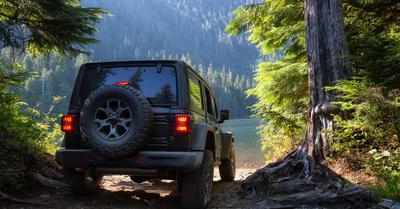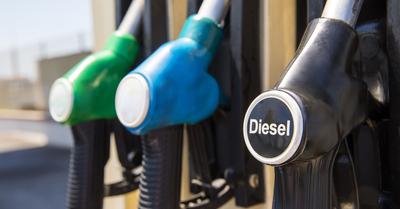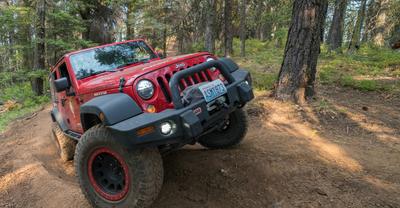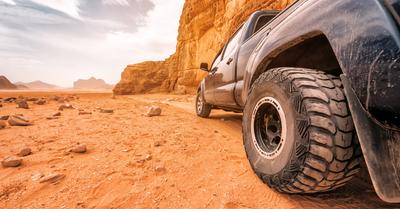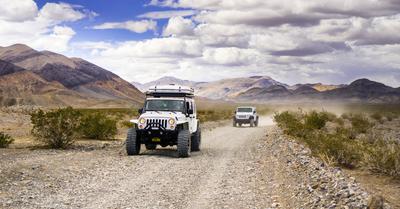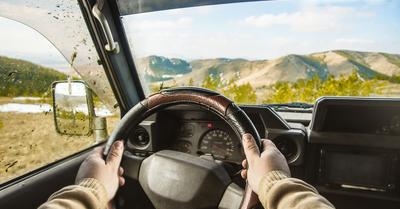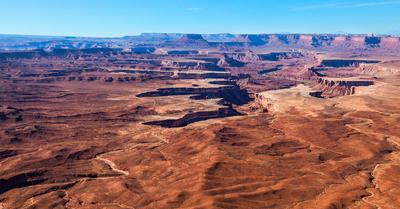We’re used to managing insurance for our personal vehicles, but what about off-road vehicles? Do off-road vehicles need insurance?
Your off-road vehicle insurance needs depend on whether you drive it on private or public roads. If you drive your off-road vehicle on public roads, you are required by law to have at least liability insurance to protect yourself and others.
Many off-road owners come to the mistaken conclusion that since they have their personal vehicles insured, this policy will cover their off-road vehicles as well, but this is not true. Most insurance policies will not cover off-road vehicles, and you have to get separate insurance for them.
Learning from the mistakes of other off-roaders out there, let’s look at some of the things to keep in mind when it comes to your off-road vehicle insurance.
This article may contain affiliate links where we earn a commission from qualifying purchases.
Do Off-Road Vehicles Require Insurance on Public or Private Property?
If you’re operating any kind of motor vehicle on a public road – even an unpaved one – you need to be insured with at least liability coverage. Not only is driving on public roads illegal, it is also very risky. If you happen to get into any sort of accident and end up causing injury, or even damage to someone else’s property, you wouldn’t have anything in place to protect you.
This can put you at a major risk, both in terms of your finances and from a legal aspect. Even if you’re driving your vehicle over a small distance, if you are on public property, you want to be sure you’re insured.
Most insurance policies for private home vehicles don’t cover off-road or recreational vehicles – not even for liabilities or physical damage. To be properly insured, you need to have a separate insurance policy for your vehicle and make sure it has the coverage you need.
Some companies do allow you to add policies to your regular car insurance to cover your off-road vehicles. Others will let you take out separate insurance and get a multi-line discount. We’ll look at what off-road vehicle insurance covers in a bit.
For private property, you don’t always need to insure your vehicle. This is not the best idea, even if you don’t drive your off-road vehicle on public roads, because you never know when you will need to take it out on public property, and you can’t do that without insurance. It may save you some money in the short-term but it can have some major costs in the long-run.
Although coverage is not necessary for vehicles that are driven only on private property, it is best to have a minimum of liability coverage for your off-road vehicle.
What Should Your Off-Road Insurance Coverage Include?
Your off-road vehicle insurance should include the following, at minimum:
Bodily Injury Liability
This kind of coverage protects you in case an accident occurs and another person suffers an injury due to a fault on your part. With this coverage, you will not have to pay for the other person’s medical expenses.
Property Damage Liability
If your insurance policy covers property damage, the insurance company will take over the cost of replacing any kind of items that may have gotten damaged in an accident where you were at fault. This could be a vehicle, a fence, a house or any other kind of private property.
Collision Coverage
Insurance policies with collision coverage will usually pay for any kind of physical damage that occurs with your vehicle if you happen to get into an accident. If you get into an accident where someone else was at fault, your damages will be paid for by their liability insurance.
Comprehensive Coverage
If your vehicle gets damaged by anything else – for example, by fire, flooding, theft, etc. Basically, anything that isn’t an accident of some sort – comprehensive insurance takes over the costs of the damages.
Optional coverage is also something you can opt for, such as towing. Sometimes, companies offer uninsured motorist coverage too, in case someone who isn’t insured causes damage to your off-road vehicle. If the other person isn’t insured, but is at fault for your car’s damage, you will have to pay for the damages on your own, so it is best to get this option if it is available.
Remember, you have to pay deductibles before insurance takes over the costs, and there are also coverage limits to keep in mind. As such, you should read over the policies carefully to see how much protection is offered and how much you would be putting at risk.
Depending on your location, you may also be required by law to carry proof of your off-road vehicle insurance with you. It is a good idea to check your local laws to make sure you’re complying with them.
Why Is Off-Road Insurance Different From Regular Insurance?
The difference between coverage for regular cars and off-road vehicles is mainly due to the recreational purpose of off-road vehicles, but also because there are a number of features that off-road vehicles have, which regular cars do not.
Mods and accessories are also often covered by off-road insurance, such as the specialized tires, LED headlights, roof racks etc. These add-ons do result in the price of insurance premiums going up, so it is best to see what parts you want insured and which ones you can go without.
Some insurance policies will also cover animal or livestock collisions. Since you will likely encounter a number of animals when you’re driving out in the countryside, or taking a trip through state parks, this kind of coverage is also sometimes offered. However, this depends on your insurance provider, and not all companies have this option.
Another reason is due to reckless driving. Reckless driving in the city is also looked down upon, but is not necessarily as damaging to your vehicle as reckless driving off-road, where you are likely to encounter a number of obstacles. These could include rocks, trees, etc.
Therefore, insurance companies will not cover your off-road vehicle for any faults that occur due to reckless driving, or because of mechanical faults.
Some insurance companies also do not consider damages that take place during recreational sports and competitions. Your coverage is likely limited to private off-road driving, and not for motor sports where the chances of accidents is rather high.
Will Off-Road Insurance Also Cover Regular Road Use?
Some people use their off-road vehicles as regular cars, as well as for off-roading, and you may wonder, will you have to get insurance twice? Or will your off-road insurance cover use on regular roads as well?
Unfortunately, many insurance companies specify that they will only cover damages for accidents that happened while off-roading, and not while you were driving your vehicle on typical roads like public highways.
In fact, in many places, it is also illegal to drive such vehicles on public roads, so if you don’t want to get into trouble, you may want to look over your state laws. However, some states do allow the use of off-road vehicles for regular use. These are called ‘mall crawlers,’ and if you happen to be using one of these, it is best to consult your insurance provider and see if they will include the vehicle in your regular car insurance policy, or if you need to get separate insurance for it.
Off-road insurance can be very costly – much costlier than your regular car insurance – but keeping your vehicle uninsured can cause much more damage in the long run.


